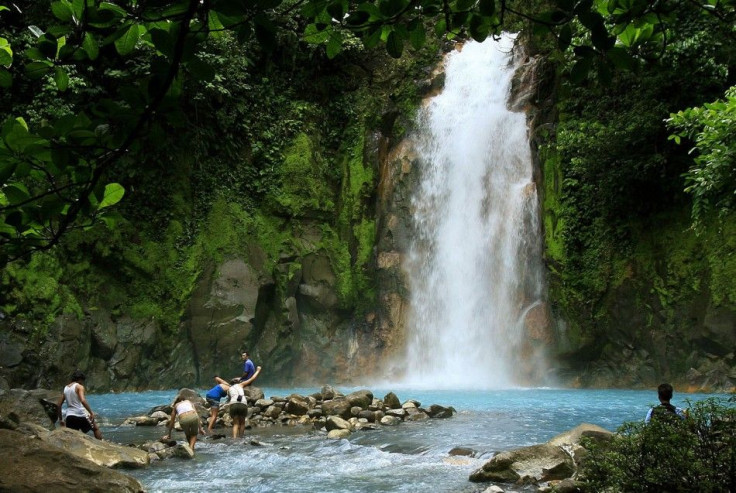Why The UN Is Using Ecotourism To Fight Poverty, Safeguard The Environment

On Dec. 21, the United Nations General Assembly quietly passed a resolution touting the role of ecotourism in the fight against poverty and the protection of the environment.
Entitled “Promotion of ecotourism for poverty eradication and environment protection,” the resolution called on U.N. member states to adopt policies that underscore ecotourism’s “positive impact on income generation, job creation and education and, thus, on the fight against poverty and hunger.”
“Ecotourism creates significant opportunities for the conservation, protection and sustainable use of biodiversity and of natural areas by encouraging local and indigenous communities in host countries and tourists alike to preserve and respect natural and cultural heritage,” it stated.
U.N. World Tourism Organization Secretary-General Taleb Rifai called the unanimously adopted resolution a significant acknowledgment of tourism’s role in promoting sustainable development.
“The remarkable support that the resolution has received, from all regions and across the development spectrum, is a clear testimony that sustainable tourism has a vital role to play in a fairer and sustainable future for all,” he said.
Facilitated by Morocco and sponsored by 105 delegations, the measure drew on recommendations spelled out in a report prepared by Unwto based on the responses of 48 member states -- a marked departure from the U.N. General Assembly’s normal practices. It urged nations to create small and medium-size enterprises, promote cooperatives and facilitate access to finances in areas with ecotourism potential through means such as microcredit initiatives for the poor.
The new resolution builds upon a previous one on the same subject in 2010 and reflects recent developments like tourism’s inclusion within both the U.N. Conference on Sustainable Development (Rio+20) and the 11th meeting of the Conference of the Parties to the Convention on Biodiversity.
Gastão Vieira, Brazil’s minister of tourism, noted at Rio+20 last June that tourism was “interlinked with the seven key themes” being discussed at the event: jobs, energy, cities, food, water, oceans and disasters.
“[All of these] can be a factor of development for developing and developed countries alike,” he said.
At that event, global leaders debated how to make tourism a more effective tool in the fight against poverty, how to build better links between local communities and tourism attractions and how to advance tourists’ awareness of their obligation to respect and protect the environment.
Some studies have suggested that there is not enough available research on the link between tourism and socioeconomic development and that truly impoverished people are less likely to benefit from ecotourism than those who already have access to resources.
A study out last April funded by the National Science Foundation looked at 220 families in Wolong, home to China’s largest and best-known panda reserve, where the economic base has shifted from agriculture to tourism. It found that ecotourism was not necessarily a quick fix for poverty and that those who already had more assets before the switch to tourism benefitted disproportionately.
“Despite the popularity of the concept of nature-based tourism as an integrated conservation and development tool, empirical research on its actual socioeconomic benefits, on the distributional pattern of these benefits and on its direct driving factors is lacking, because relevant long-term data are rarely available,” the authors noted.
They believe more research is necessary to look at the implementation of these schemes and whether they achieve the desired and balanced social, economic and ecological goals.
© Copyright IBTimes 2024. All rights reserved.






















